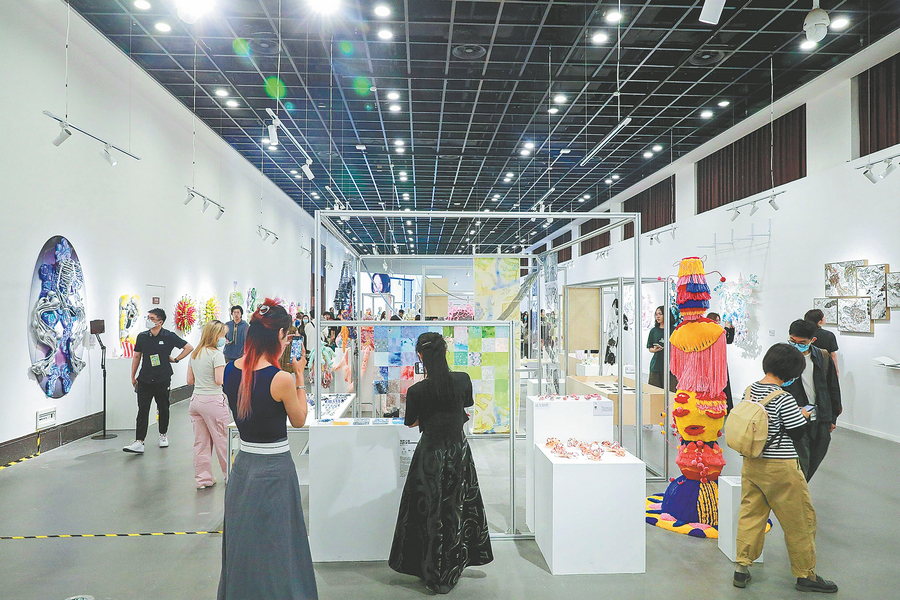

Youth and the future are key themes in celebration of talent, Li Yingxue reports.
The garden represents a treasured concept of human innocence, a realm where dreams thrive. Whether it is the Garden of Eden, Arcadia, Utopia, or Marco Polo's "Xanadu" under Kublai Khan, it is a place where flowers flourish in abundance, prosperity reigns, conflicts are nonexistent, and suffering is unknown.
Under the theme of Brain Garden, the fifth Zhijiang International Youth Art Festival 2023 and the China Academy of Art graduation season concluded on June 18 in Hangzhou, East China's Zhejiang province. It offered a wide variety of online and offline artistic shows and activities centered on the future and youth, and attracted an audience of more than 400,000.
With an exhibition area spanning nearly 70,000 square meters at six venues, including the Zhejiang Exhibition Hall, the Zhejiang Art Museum and the World Tourism Museum, this citywide event presented a captivating showcase of over 3,000 works created by 2,500 graduates holding bachelor's, master's, and doctorate degrees.
"The theme of Brain Garden is a summons, calling forth the dialectics of freedom and the spirit of creativity," says Gao Shiming, head of the China Academy of Art. "The responsibility of art is to create, to generate fresh mind-body experiences for ordinary life, and to construct a rich future vision for human history."
Gao finds this year's graduation projects have one feature, which is engaging in dialogue — with the classics, with the everyday, with oneself and with the future.
"I'm not concerned about artificial intelligence replacing human creativity because anything that can be replaced is not genuine creativity. Human artistic creation is guided by purpose and propelled by desire, making it a matter of the soul," Gao says.
"Just as photography in the 19th century did not replace painting, computers and AI cannot replace artists and designers," he says.
He thinks the festival has helped to fully unlock the power of art and innovation, inspiring young people with art and facilitating efforts to make the city of Hangzhou, which blends tradition and modernity, a destination and spiritual home for young artists worldwide and a world cradle of cultural innovation in the post-pandemic era.
"Our objective is to transform Hangzhou into a 'boundary-less academy', igniting its youthfulness, liveliness, and sense of fashion," Gao says.